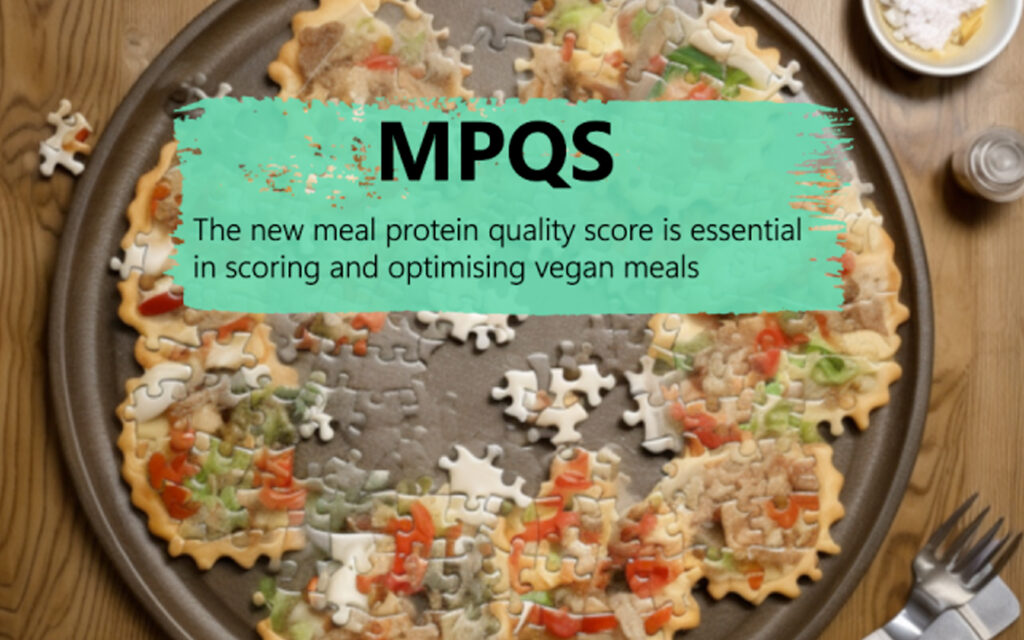
Meal Protein Quality Score: A novel tool to evaluate protein quantity and quality of meals
A short version of our full preprint, which is accessible here.
Background:The recent shift towards increased plant-based protein consumption has necessitated the development of new tools to evaluate the quality and quantity of protein in meals, especially given the changing dietary guidelines and the adoption of plant-centric menus in healthcare and other settings.
Objective:To develop and test the feasibility of the Meal Protein Quality Score (MPQS), a novel metric that assesses the protein quality and quantity in meals based on essential amino acid (EAA) content, digestibility and requirements, with a focus on optimizing protein intake for vulnerable populations, particularly older adults.
Methods: The MPQS integrates digestibility-adjusted EAA intake with total protein consumed in a meal, that together with the EAA requirements provide a score from 0 to 100 to reflect EAA coverage adequacy. The score was tested for feasibility by applying it to recipe data from real life hospital meals, and to dietary data from the NU-AGE trial, involving detailed seven-day food records from 252 non-vegan participants analyzed over multiple meal moments.
Results: The analyses revealed that the higher the content of plant-protein in a meal, the lower the meal protein quality. Also, breakfast meals scored lowest on protein quality, mainly due to low contents of protein overall, and of lysine and methionine. The MPQS effectively highlighted the difference in protein quality between plant-based and animal-based meals, and across different meal types.
Conclusion: The MPQS appears to be a practical tool that facilitates the assessment of meal-based protein quality. The MPQS can be used to guide dietary transitions towards plant-rich diets, ensuring that such shifts do not compromise protein adequacy for at-risk populations. The score allows for guidance in meal-planning, leading to improvements in plant-rich meal formulation to meet both individual and public health nutritional needs.
The score:
The MPQS compares digestibility-adjusted EAA intake against meal-specific requirements.
The meal-specific requirements are constructed based on:
Protein quantity: 0.3 g/kg per meal moment
Protein quality: WHO/FAO Reference patterns

MPQS can have values between
0: at least one essential amino acid is completely missing in the meal and
≥100: all essential amino acids reach the requirements
MPQS scores can score above 100 when each amino acid in the meal exceeds the requirement.
Example meal

In the preprint, you will find calculations of:
22 real-life plant-rich hospital meals
>5000 meals eaten by older, Dutch participants of the Nu-Age trial
Find it fully accessible here.
> all updates

